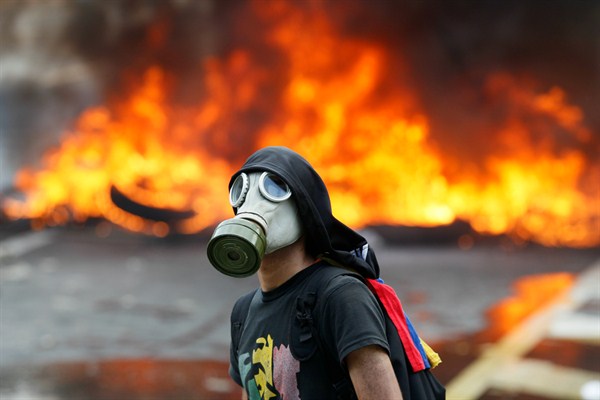The protests and unrest that have wracked Venezuela over the past month, resulting in the deaths of at least 22 people, represent a sudden change from the malaise and passivity that had settled over the Venezuelan opposition from December to March. Through mid-March, there was a heavy sense of pessimism and fatalism on the streets of Caracas and other cities. President Nicolas Maduro’s government seemed to be consolidating its power; people were disillusioned with the opposition leadership; and the international community seemed unable to act.
A few things are behind this recent surge in opposition activity. First, Latin American countries have more fully engaged and pressured the Maduro government. This started with the discussion of Venezuela in the Organization of American States’ Permanent Council on March 28, in response to an updated report by OAS Secretary-General Luis Almagro. That discussion failed to achieve any clear resolution, which Maduro clearly saw as a victory. But it was short-lived.
When Venezuela’s Supreme Justice Tribunal made a power grab the very next day, it proved to be a tipping point. The move by the country’s highest court, which is controlled by Maduro loyalists, to assume all legislative powers, effectively shutting down the opposition-led National Assembly, led to a deluge of international criticism. Given the previous debate at the OAS, every country in the region was up-to-date about Venezuela’s democratic deficits and primed to respond.

